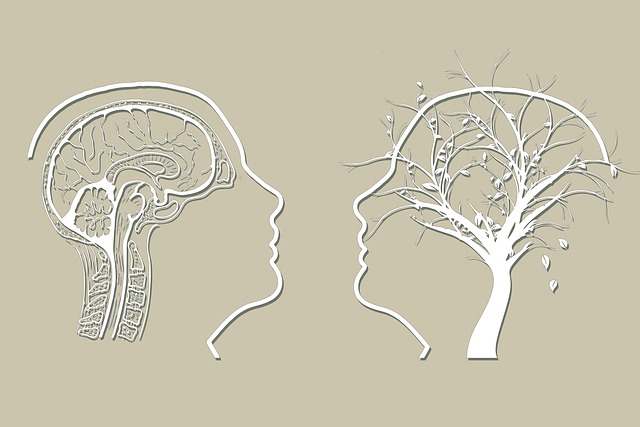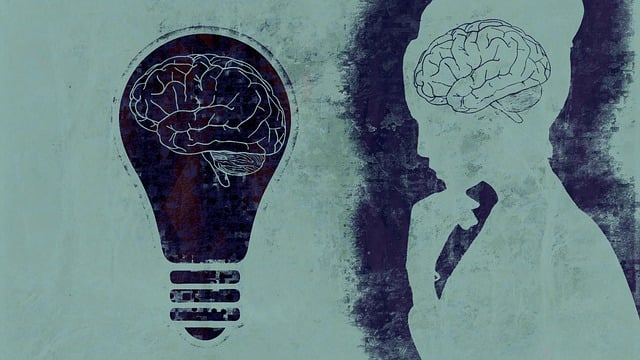Emotional Intelligence (EQ) is a key factor in trauma recovery, with research showing higher EQ correlating to quicker and better PTSD recovery. Golden Post-Traumatic Stress Disorder Therapy combines advanced therapy techniques with empathy-building strategies to enhance EQ, improve self-esteem, and promote emotional regulation. This approach not only reduces PTSD symptoms but also fosters personal growth, better relationships, and enhanced well-being through mindfulness, mental health education, and community outreach. Integrating these strategies into daily life offers long-term healing and improved quality of life for individuals with PTSD, making Golden PTSD Therapy a powerful and innovative treatment method.
Emotional intelligence (EQ) is a powerful tool for navigating life’s complexities, especially in healing from challenging experiences like post-traumatic stress disorder (PTSD). This article delves into the profound impact of EQ on overall well-being and offers a transformative approach through Golden Post-Traumatic Stress Disorder Therapy. We explore key components of building emotional intelligence and practical strategies to integrate these skills into daily life, fostering long-term healing and resilience.
- Understanding Emotional Intelligence and its Impact on Well-being
- Unveiling the Connection Between EQ and Post-Traumatic Stress Disorder (PTSD)
- Golden Post-Traumatic Stress Disorder Therapy: A Transformative Approach
- Key Components of Building Emotional Intelligence
- Practical Strategies for Integrating EQ into Daily Life and Long-term Healing
Understanding Emotional Intelligence and its Impact on Well-being

Emotional intelligence (EQ) is a powerful tool for enhancing mental wellness and overall well-being. It involves recognizing, understanding, and managing one’s own emotions, as well as empathizing with and navigating the feelings of others. This ability to perceive and interpret emotional cues can significantly impact an individual’s quality of life, fostering better relationships, improved communication, and increased resilience in the face of challenges.
One area where EQ proves particularly beneficial is in recovering from traumatic events. Golden Post-Traumatic Stress Disorder (PTSD) Therapy emphasizes the importance of building emotional intelligence as a key component in treatment. By cultivating self-awareness and emotional regulation skills, individuals can develop greater mental wellness and resilience, enabling them to cope more effectively with the aftermath of trauma. This approach not only supports symptom reduction but also empowers individuals to lead more fulfilling lives by enhancing their ability to connect and interact with others in meaningful ways.
Unveiling the Connection Between EQ and Post-Traumatic Stress Disorder (PTSD)

Emotional intelligence (EQ) has emerged as a powerful tool in managing and overcoming post-traumatic stress disorder (PTSD). Research suggests that individuals with higher EQ are better equipped to cope with traumatic experiences, showcasing resilience and quicker recovery times. This connection is particularly significant in PTSD therapy, where enhancing emotional awareness can significantly improve treatment outcomes.
Golden Post-Traumatic Stress Disorder Therapy often incorporates techniques from mental health education programs designed to foster communication strategies and crisis intervention guidance. By teaching individuals to recognize and manage their emotions effectively, therapists enable them to process traumatic memories with greater ease. This not only reduces the intensity of PTSD symptoms but also empowers individuals to lead more fulfilling lives, demonstrating the profound impact of EQ in healing and personal growth.
Golden Post-Traumatic Stress Disorder Therapy: A Transformative Approach

Golden Post-Traumatic Stress Disorder (PTSD) Therapy offers a transformative approach to healing and personal growth. This innovative method goes beyond traditional PTSD treatments, focusing on cultivating inner strength and resilience. By combining advanced therapeutic techniques with empathy-building strategies, individuals can effectively manage trauma’s impact while fostering self-esteem improvement. The therapy encourages clients to explore their emotions, develop coping mechanisms, and enhance their ability to connect with others—a process that strengthens their overall emotional intelligence.
This holistic approach not only addresses the symptoms of PTSD but also empowers individuals to navigate life’s challenges with newfound clarity and confidence. Through Golden PTSD Therapy, clients embark on a journey of self-discovery, learning valuable skills for stress management, emotional regulation, and empathy. As a result, they develop a deeper understanding of themselves and others, leading to improved relationships and an enhanced sense of well-being.
Key Components of Building Emotional Intelligence

Building emotional intelligence involves a multifaceted approach that goes beyond basic self-awareness. Key components include developing strong self-management skills to regulate emotions, improving social awareness by empathizing with others, and cultivating effective communication strategies. One powerful tool in this process is therapy, particularly Golden Post-Traumatic Stress Disorder (PTSD) Therapy, which has proven effective for many individuals.
Community Outreach Program Implementation plays a significant role in enhancing emotional intelligence on a larger scale. Confidence-boosting activities and mindfulness meditation techniques are also essential elements of this journey. By integrating these practices into daily routines, individuals can improve their ability to navigate social interactions, manage stress, and build stronger relationships.
Practical Strategies for Integrating EQ into Daily Life and Long-term Healing

Integrating emotional intelligence (EQ) into daily life is a powerful tool for long-term healing and growth, especially for those navigating post-traumatic stress disorder (PTSD). Practical strategies such as mindfulness practices, cognitive reframing, and self-care routines can significantly enhance EQ. Mindfulness, for instance, teaches individuals to stay present, observe their emotions without judgment, and develop a deeper understanding of their triggers, which is crucial in managing anxiety relief and preventing relapse.
Resilience building is another vital aspect that goes hand in hand with EQ development. Through mental health education programs designed to foster resilience, individuals can learn coping mechanisms to handle challenging situations. This includes developing emotional regulation skills, improving communication, and cultivating empathy, all of which contribute to better overall mental health. By integrating these strategies into daily routines, individuals not only enhance their ability to cope but also create a foundation for long-term healing and improved quality of life, even in the face of PTSD symptoms.
Emotional intelligence (EQ) is a powerful tool in navigating life’s challenges, especially in managing post-traumatic stress disorder (PTSD). As highlighted, the Golden Post-Traumatic Stress Disorder Therapy offers a transformative approach by addressing EQ, fostering healing and resilience. By understanding and cultivating key components of emotional intelligence, individuals can enhance their well-being and effectively integrate these strategies into daily life for long-term mental health benefits. This article provides valuable insights to embark on a journey of self-discovery and growth.













